3MT Finalists 2024
Read on to learn more about the 13 doctoral candidates who qualified for the UoA 2024 3MT Finals.
- Bex Ansell (Faculty of Arts)
- Briar Hunter (Liggins Institute)
- Claire Beach (Business School)
- Holly Wilson (Faculty of Medical and Health Sciences)
- Inka Pleiss (Faculty of Science)
- Isurie Akarawita (Faculty of Engineering)
- Jiajia Lin (Faculty of Arts)
- Jie Bao (Faculty of Creative Arts and Industries)
- Komal Srinivasa (Faculty of Medical and Health Sciences)
- Logan Ritchie (Auckland Bioengineering Institute)
- Qijia (Lilly) Peng (Faculty of Engineering)
- Qun Ma (Faculty of Education and Social Work)
- Sandra Gómez Gálvez (Faculty of Science)
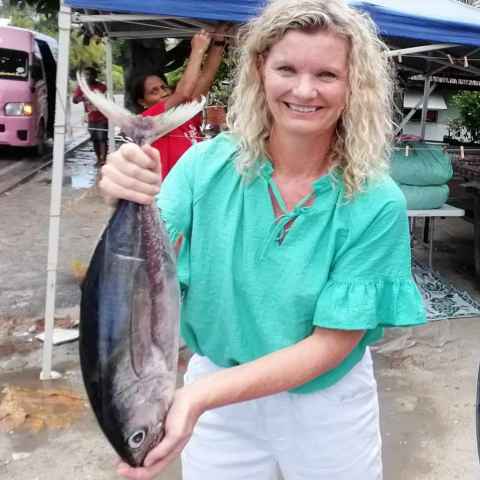
Bex Ansell (Faculty of Arts)
Tell us a bit about where you are from.
I grew up with my two younger sisters, living close to the ocean in windy Wellington and spending our weekends and holidays beachcombing and tramping.
What inspired you to go into your field of study?
I've been fascinated by Kiribati for many years. It's a remote geopolitically important Pacific country almost entirely dependent on selling tuna fishing rights to foreign nations. My Dad was a Professor who studied geology and earth science, and he taught me to be curious about the world and look beneath the surface, think deeply and ask questions. My research looks at why women are effectively excluded from tuna fishing in Kiribati communities and how they could be given the opportunity to engage. And most importantly, it will reveal the impact industrial tuna fishing is having on local stocks and local tuna livelihoods.
What’s the best piece of doctoral advice you’ve ever received?
Make a week-by-week plan and make it visible - stick it next to your desk and share it with your supervisors. It'll help you feel in control of it, rather than the other way around!
If you could have dinner with any four people (living or dead), who would you choose?
My Dad: he died when I was twenty, and he'd get a real kick out of me doing my PhD. My partner Rob: he never got to meet my Dad, but they both have the same positive can-do outlook on life. Dr Sylvia Earle: marine oceanographer and conservationist, who (like me) also has a fascination with seaweeds. And Gerald Durrell: naturalist and very funny author who inspired me to study biology.
What do you do to relax when you’re not working on your thesis?
Spend time with my four kids, ride my motorbike, walk in nature, and plan my next scuba-dive.
What do you hope to do once you’ve finished your studies?
I've been extremely lucky in that my PhD conversations led to me securing a new contract with New Zealand's Aid programme. I work part-time, supporting Pacific countries, including Kiribati, to manage multiple demands on their oceans. Once I finish my studies I want to continue working in marine management and conservation, looking for ways to encourage women to be involved, and raising awareness about unsustainable fishing practices.
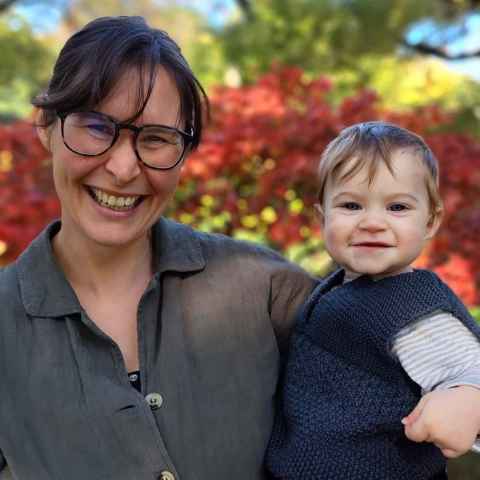
Briar Hunter (Liggins Institute)
Tell us a bit about where you are from.
I grew up in Dunedin and the South Island of New Zealand is home for me.
What inspired you to go into your field of study?
I initially completed an undergraduate degree in BioMedical Sciences but really felt like I was missing having a personal connection with patients. My father is a doctor and we have a strong medical history in our family and I had seen the fulfilment he experienced from helping alter the trajectory of people’s lives for the better, and this was definitely a source of inspiration for me.
What’s the best piece of doctoral advice you’ve ever received?
You will never clear your plate of work to be done, at the end of each day make peace with that and take a break.
If you could have dinner with any four people (living or dead), who would you choose?
I would love to have dinner with my grandparents who all died when I was young. It would be great to be able to talk to them now as an adult and share stories of our lives.
What do you do to relax when you’re not working on your thesis?
I have a busy 2 year old who provides a lot of happy distraction. We love going out for walks and adventures as a family and I have a strong yoga practice at the amazing Space Yoga Studio in Wellington.
What do you hope to do once you’ve finished your studies?
At the end of my PhD I will return to my clinical training in Obstetrics and hope to combine my skills to become a clinical academic.
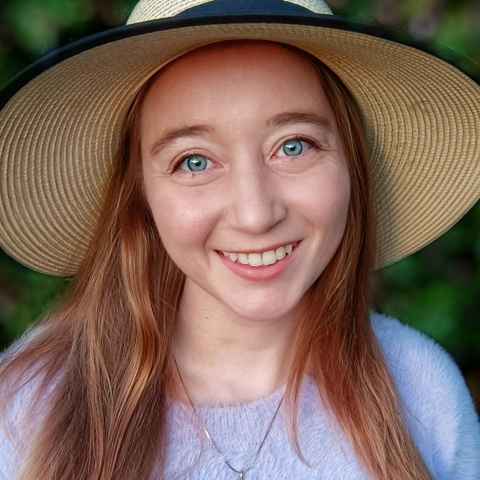
Claire Beach (Business School)
Tell us a bit about where you are from.
I’m originally from Oklahoma in the US. There is a huge emphasis on nature and being outdoors, with activities often centred around camping and fishing. After completing my bachelor's degree, I moved to Europe, where I completed two MAs in the UK and Germany. Both countries have strong trekking cultures, and I completed many multi-day hikes, including portions of the West Highland Way and der Rheinweg.
What inspired you to go into your field of study?
My research is inspired by my love of nature and travel. I am an avid fan of nature-based tourism and love visiting national parks and wildlife watching. Environmental conservation is practically the antithesis of travelling and tourism, creating a personal conundrum many of us struggle with. Thus, I’m really interested in the extent to which we can reconcile nature and travel.
What’s the best piece of doctoral advice you’ve ever received?
Synergy. Synergy is necessary to balance the holy academic trinity of research, teaching, and service. By intentionally only engaging in activities that meet at least two of your goals, you can create a better work-life balance by being strategic and going for maximum impact rather than the number of activities you are engaged in.
If you could have dinner with any four people (living or dead), who would you choose?
If I could have dinner with anyone, I’d choose:
- Eleanor Roosevelt – the longest-serving first lady in the US, who played a major role as a diplomat and activist. She played a significant role in promoting equality across genders and races in the US.
- Mary McLeod Bethune – is consistently recognised as one of the most important women in US history. She was the first black woman from the US to be involved in three presidential administrations and UN Conferences. She was a key organiser in the suffragette and coloured women’s movements in the US.c.
- My Great Aunt Joyce & Uncle Ron – I was close to them growing up, and they have both passed away. I think about them every day and would love to be able to see them and hug them one more time.
What do you do to relax when you’re not working on your thesis?
When I’m not working on my PhD, I often go hiking or camping.
What do you hope to do once you’ve finished your studies?
First, I want to go camping for at least a month. Mostly to reconnect with nature but also to avoid technology. Then, I want to work on translating my findings into policy interventions to help provide tourism firms with access to the resources necessary to facilitate sustainable transitions in the tourism industry.
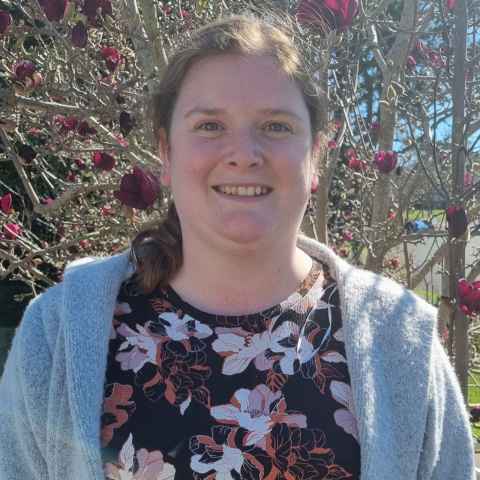
Holly Wilson (Faculty of Medical and Health Sciences)
Tell us a bit about where you are from.
I grew up on a farm in Waikato and moved to Tauranga with my family when I was seven.
What inspired you to go into your field of study?
I have always been passionate about psychology and health, particularly understanding how people think and behave about their health. While completing my Masters, a member of my whānau experienced several preventable hospital readmissions where I personally experienced of the impacts of readmissions. This experience and its challenges have made me
passionate to improve people’s experiences with healthcare.
What’s the best piece of doctoral advice you’ve ever received?
It's all about the journey, the people you meet, the skills you develop and the network you create.
If you could have dinner with any four people (living or dead), who would you choose?
Johann Sebastian Bach (composer), my Grandad and my parents.
What do you do to relax when you’re not working on your thesis?
I enjoy being outside, swimming, spending time with friends and whānau.
What do you hope to do once you’ve finished your studies?
I hope to be able to continue to research and hopefully improve health services to ensure that patients, their whānau and professionals have the best experience possible.
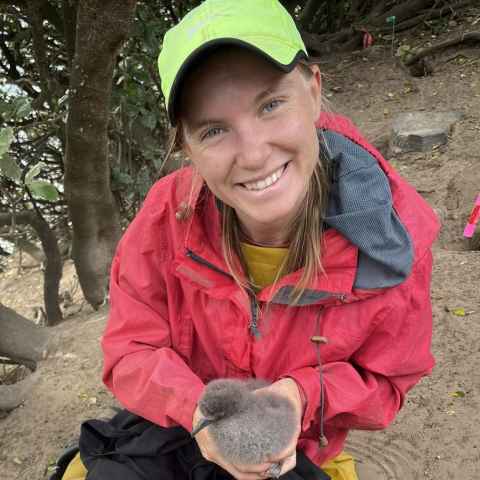
Inka Pleiss (Faculty of Science)
Tell us a bit about where you are from.
I am originally from Frankfurt, Germany, but moved to New Zealand with my family at the age of five and have lived in Auckland ever since.
What inspired you to go into your field of study?
Growing up, my family spent a lot of time in the outdoors so I have always had an appreciation of nature. When I was 18, I had the opportunity to attend Blake Inspire (then YELF) which focused on climate change and gave me my first look at marine organisms under a microscope. And finally, I went to the Te Papa museum in Wellington and was inspired by their Te Taiao | Nature exhibition.
What’s the best piece of doctoral advice you’ve ever received?
It's not just about the thesis in the end (though this is the biggest part!). It's also about making connections with colleagues and academics, attending workshops to upskill, presenting at conferences to widen your network and knowledge system, and teaching in undergraduate courses to inspire the next generation of researchers. It's important to come out the other side of a doctorate with a completed thesis that you are proud of, but also with the skills and connections that make you employable so that you can keep doing awesome research.
If you could have dinner with any four people (living or dead), who would you choose?
I would choose Jesus, my husband, David Attenborough, and American fantasy author Sarah J Maas.
What do you do to relax when you’re not working on your thesis?
When I'm not working on my thesis, I love to wind down by doing a bit of gardening or taking my puppy to the dog park.
What do you hope to do once you’ve finished your studies?
When I finish my studies, I would love to get a position at a University as a lecturer, or at a museum in the natural sciences department.
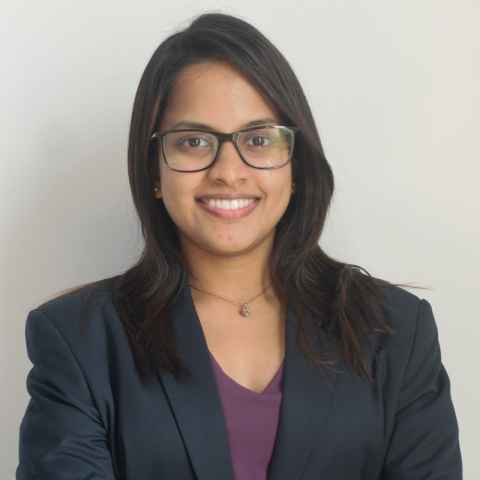
Isurie Akarawita (Faculty of Engineering)
Tell us a bit about where you are from.
I was born and raised in Sri Lanka.
What inspired you to go into your field of study?
I have completed my bachelor's and master's degrees in mechatronics engineering. Following my higher studies, I was mainly involved in academia and research. The endless possibilities for innovation, the advancements in AI technologies, and the impact of mechatronics on various industries have fuelled my passion for this field.
What’s the best piece of doctoral advice you’ve ever received?
The best piece of doctoral advice I have received is to maintain a balance between persistence and flexibility. While it’s crucial to be persistent in research efforts, it’s equally important to be flexible and open to new ideas and directions.
What do you do to relax when you’re not working on your thesis?
When I am not working on my thesis, I love to travel, go on new adventures, and savour different cuisines. I also find joy and relaxation in spending quality time with my family and friends.
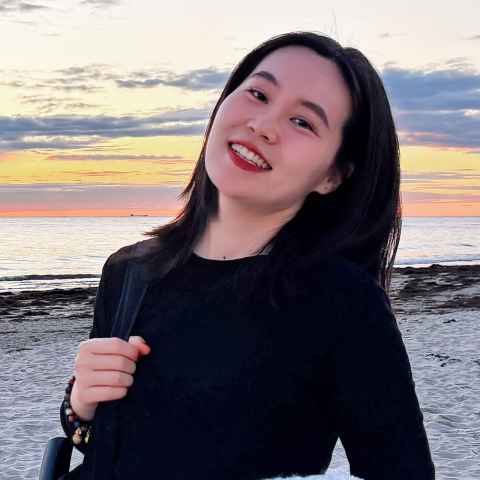
Jiajia Lin (Faculty of Arts)
Tell us a bit about where you are from.
I'm from Wenzhou (a small city along the southeastern seashore), Zhejiang Province, China.
What inspired you to go into your field of study?
A common hobby with my father of watching science fiction, which usually tells the story of the complicated relationship between humans and machines in the context of a cyborg world.
What’s the best piece of doctoral advice you’ve ever received?
Be simple and profound.
If you could have dinner with any four people (living or dead), who would you choose?
Dad (who I miss most at this moment), the editor of the journal Computer Assisted Language Learning (I want to ask him/her what kind of articles he/she is looking forward to in the next issue of the journal), Tim Miller (the director of the television series named Love, Death & Roberts) and Pablo Picasso.
What do you do to relax when you’re not working on your thesis?
Painting, cooking, and hiking.
What do you hope to do once you’ve finished your studies?
Buy a sewing machine and make clothes designed by myself (I've had this plan in my mind for quite a long time).
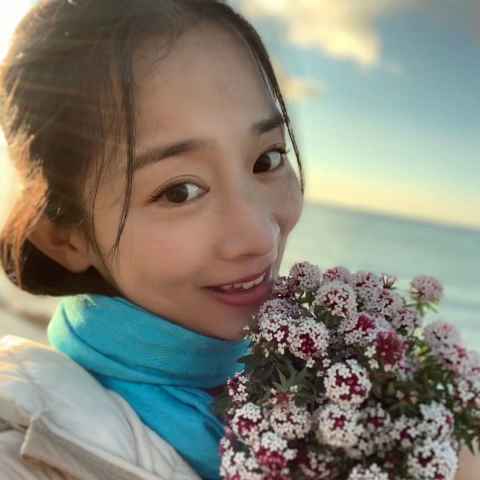
Jie Bao (Faculty of Creative Arts and Industries)
Tell us a bit about where you are from.
My ancestral roots trace back to Shanghai, China, situated in the vibrant southern part of the country, often celebrated as the “Pearl of the Orient.” During my formative years, I called Hefei home, nestled in developing central China. It offered a serene ambiance characterized by quaint streets, traditional courtyard houses, and verdant parks, which painted a picturesque backdrop for my early memories. As I matured, I embarked on an academic and professional journey that primarily unfolded in Beijing, the capital located in northern China. Beijing blends ancient traditions with modern innovations. The majestic Forbidden City, the awe-inspiring Great Wall, and the dynamic pulse of a modern metropolis expanded my horizons and enriched my intellectual pursuits. Now, I am part of the Dance Studies faculty in the Creative Arts and Industries at the University of Auckland in New Zealand. Each city, academic, and professional experience has profoundly influenced my life’s trajectory, shaping who I am today.
What inspired you to go into your field of study?
PASSION! PASSION! PASSION!
What’s the best piece of doctoral advice you’ve ever received?
Research is to see what everybody else has seen, and to think what nobody else has thought.
If you could have dinner with any four people (living or dead), who would you choose?
If I could have dinner with any four people, I would choose the person I love the most, the person who loves me the most, the person I dislike the most, and the person who dislikes me the most. I believe this represents life. It’s never as wonderful as we hope, but it’s also never as terrible as we fear. It would also be a unique opportunity to share perspectives, understand differences, and appreciate the diversity of human experiences.
What do you do to relax when you’re not working on your thesis?
When I’m not working on my thesis, I mostly relax by hiking and writing novels.
What do you hope to do once you’ve finished your studies?
Once I’ve finished my studies, I hope to contribute positively to society through my work, whether it's through teaching dance to inspire and educate future generations, through research that advances our understanding of creative arts and its impacts, or through community projects that bring the joy and benefits of dance to people from all walks of life.
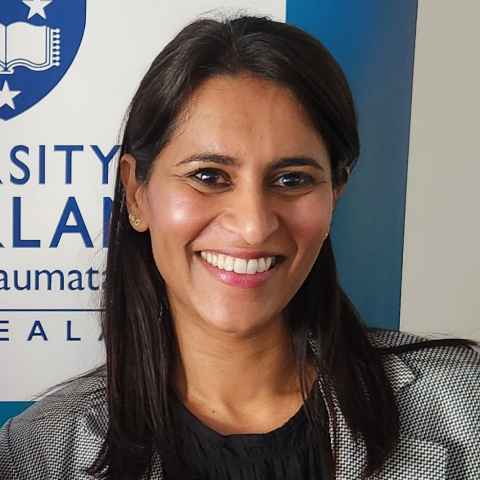
Komal Srinivasa (Faculty of Medical and Health Sciences)
Tell us a bit about where you are from.
I was born in Fiji and immigrated to New Zealand when I was 12 years old. I grew up in Wellington and moved to Auckland for my first junior doctor job. I have had the pleasure of working all over NZ and meeting interesting people.
What inspired you to go into your field of study?
My grandfather was diagnosed with colon cancer when I was in high school. The general practitioner (GP) who looked after him looked after my entire family. She was very inspirational, and I wanted to be a doctor just like her and help people and their families. I work as a doctor at Auckland City Hospital as a pathologist, which I thoroughly enjoy.
What’s the best piece of doctoral advice you’ve ever received?
My supervisors have said that persistence is the key to making it through. Last year, when I was feeling particularly low about my PhD journey, I mentioned to them that a PhD (at times) feels lonely and scary as you explore uncharted territories. Like the book by Dr Seuss, "Oh, the places you'll go!", where at one stage, all the doors you knock on seem shut. One of them reminded me that the book does end well as you eventually find your path, and that is applicable to a PhD journey.
If you could have dinner with any four people (living or dead), who would you choose?
Dr Jane Goodall seems like she's had an interesting life. I'm passionate about nature, so it'll be fascinating to talk with her. And I’d love to meet Chester Bennington, former lead singer of Linkin Park. I love rock music and he’ll have some fascinating stories to share for sure. My paternal grandparents would have been so proud to see what I'm doing now and what I’ve achieved.
What do you do to relax when you’re not working on your thesis?
When I get the opportunity, I like to run, read (I am particularly keen on teen fiction), garden and spend time with my whanau.
What do you hope to do once you’ve finished your studies?
I am hopeful that we can improve the quality of videos that are used for medical education. I enjoy meeting different people and hearing their points of view, so I hope to have a dual role working as a doctor and researcher in the University setting.
If you'd like to take part in an online survey which forms part of my research (and enter a draw to win a shopping voucher), please click here.
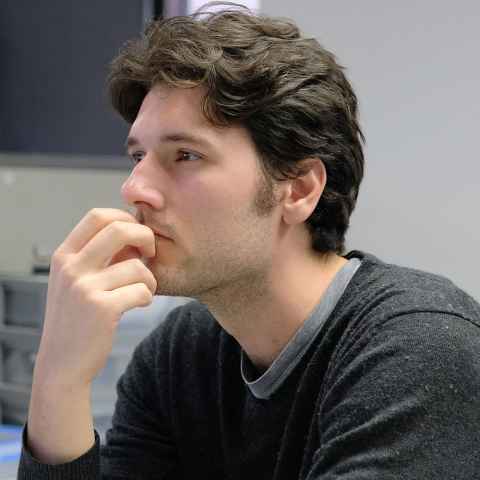
Logan Ritchie (Auckland Bioengineering Institute)
Tell us a bit about where you are from.
I’m from NZ and did my undergrad in mechatronics engineering here at Auckland.
What inspired you to go into your field of study?
I had read about the biomimetics lab here at the ABI and thought it seemed like a great combination of using mechatronics knowledge to build devices inspired by natural systems, which I was also interested in. The research going on at the ABI overall was also encouraging. It is a great place for applying engineering knowledge in ways that can directly impact people's lives.
What’s the best piece of doctoral advice you’ve ever received?
Don't believe everything you read.
If you could have dinner with any four people (living or dead), who would you choose?
Agnetha Fältskog, Björn Ulvaeus, Benny Andersson, and Anni-Frid Lyngstad.
What do you do to relax when you’re not working on your thesis?
I write those mini biographies that you find at the start of recipe websites.
What do you hope to do once you’ve finished your studies?
We'll cross that bridge when we get to it.
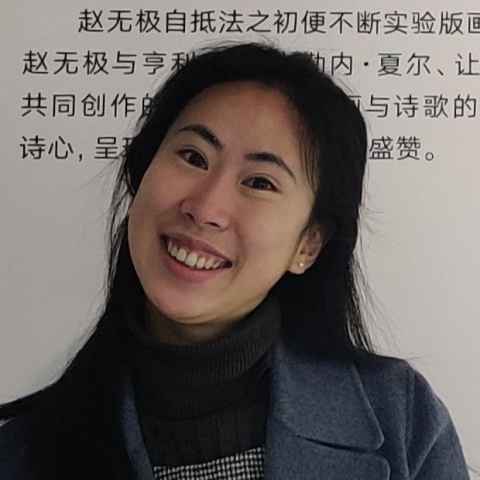
Qijia (Lilly) Peng (Faculty of Engineering)
Tell us a bit about where you are from.
I was born and raised in Fujian, China. My hometown is a small city in the mountains of northern Fujian. In the middle of the city flows the Nanpu River which is an upper reaches of a tributary of the Min River. The water comes from the Wuyi Mountains, which are north of the city. I found it suits me well to introduce myself with a Mihi.
Tēnā koutou
Ko Wuyi te maunga
Ko Min te awa
Ko Han te iwi
Ko Lilly tōku ingoa
Nō China ahau
Kei te noho au ki Tāmaki Makaurau
Tēnā kotou, tēnā kotou, tēnā tatou katoa
What inspired you to go into your field of study?
Being an engineer is very practical and hopefully useful!
What’s the best piece of doctoral advice you’ve ever received?
Keep reading, writing, deleting, and editing.
If you could have dinner with any four people (living or dead), who would you choose?
- Lin Huiyin (1904 – 1955)
- Parents, living, but they do not live in NZ
- My grandpa, who passed away 6 years ago
What do you do to relax when you’re not working on your thesis?
Painting and sketching.
What do you hope to do once you’ve finished your studies?
Maybe go backpacking in Europe first... then... return to NZ, continue to work as an industrial engineer.
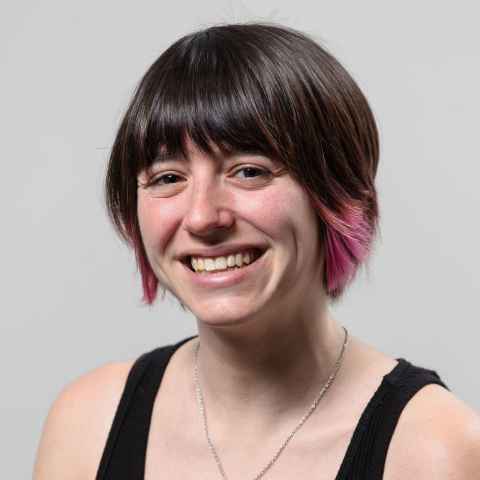
Sandra Gómez Gálvez (Faculty of Science)
Tell us a bit about where you are from.
I am Sandra Gómez Gálvez (we have two surnames in Spain). I’m from Madrid, a beautiful city in Spain, less green than New Zealand but full of stunning old buildings. Food is a big part of my culture, and I miss it a lot since it’s hard to find good Spanish ingredients here. It’s also strange for me not to see people out at 9pm; in Spain, the streets are lively at any hour. It's an incredibly social country, though it has its downsides. Despite having a great scholarship system for university studies that allows you to study for free without loans, it falls short when it comes to PhD studies and the research system. The PhD scholarships in Spain aren’t enough to live on, which is why I decided to study abroad.
What inspired you to go into your field of study?
I have always loved solving Sudokus, which inspired me to do my Math thesis on them (I did my Software thesis in a system to block phones, completely different). One of my professors suggested using swarm algorithms to solve them, which introduced me to the world of AI. I fell in love with AI and started working in the field. Before deciding to pursue a PhD, I worked at an AI startup where I learned a lot but I wanted to go deeper into the theory. Working in the industry doesn’t allow much time for in-depth study, and I wanted to understand what I was applying and even try to improve it. Additionally, I wanted to use AI to help the environment. Then, I found a scholarship in New Zealand to create AI for predator identification and applied. :-)
What’s the best piece of doctoral advice you’ve ever received?
Over the past year and a half, I’ve received a lot of advice, but the most important came from my sister: build a network and make friends. This advice has been invaluable. My friends have helped me in many ways, and without my new PhD friends, I might have given up.
If you could have dinner with any four people (living or dead), who would you choose?
I’m not someone who idolises "famous and important" people. If I could have dinner with anyone, living or dead, I would choose my grandparents (my grandparents are no longer with us, but if I have the option...) and my two sisters. They may not be the most "intelligent" people (they are surprisingly smart) in the world or have created important companies or systems, but they are my family, and now that I am so far from them, I miss them a lot.
What do you do to relax when you’re not working on your thesis?
I spend a lot of time with my partner, Rodri. We are always doing different things, and he is a big part of my world. He came with me from Spain, and I am the luckiest person in the world. Also, I watch a lot of series and love acting.
What do you hope to do once you’ve finished your studies?
Be rich. Nah, I am joking. I know being a researcher isn’t likely to make me rich, but that’s okay. Ideally, I’d like to continue my research career, but it’s hard to predict where or doing what. Life can change so quickly. Look at me—I’m a finalist in the 3MT, and two years ago I couldn’t speak English!
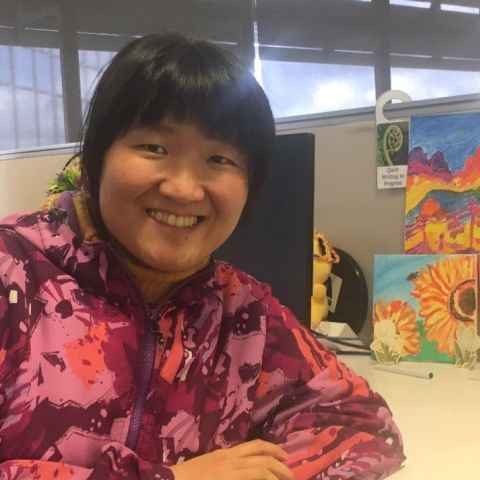
Qun Ma (Faculty of Education and Social Work)
Tell us a bit about where you are from.
I am from China. My hometown is Nanjing. It is a city with four seasons and is now close to summer. The summer there is hot and lovely. Nanjing is also a city with a history of being the ancient capital of six dynasties, so I used to take a walk among the ancient city walls there. My hometown also has lots of delicious food.
What inspired you to go into your field of study?
My early experience in kindergarten let me enter the door of early childhood education, but the actual studies, practice, and research motivated me in this field. When I had to join a kindergarten class midway through their class, three girls started to bully me. After entering primary school, I also encountered bullies, but my teachers did not offer constant support to me and even blamed me. I realised that a good teacher is important to children. I have always been aware that educational research needs more support, needs to be seen by the public, and needs to be improved, so there is more space to develop.
What’s the best piece of doctoral advice you’ve ever received?
Finished.
If you could have dinner with any four people (living or dead), who would you choose?
I would rather expand this question to the invitation of four groups of people.
- I would choose Margaret Scotford Archer (the sociologist who proposed Realist Social Theory) and Roy Bhaskar (the initiator of the philosophical movement of Critical Realism).
- I have been interested in liberal feminism recently and would invite Wen Li (the feminist podcaster who created Seahorse Planet), Yin-he Li (a liberal feminist and sexologist), Chizuko Ueno (the feminist who created the field of gender studies in Japanese academia), Mileva Marić (a physicist and mathematician) and more.
- I would like to speak with Xiao-tong Fei (the author of From the Soil), Jared Mason Diamond (the author of Guns, Germs, and Steel), and Raewyn Connell (the author of Southern Theory). I am passionate about understanding our society's structures and power dynamics and want to know how to thrive in a neoliberal and postcolonial world.
- The last group I wish to have are my two ancestors, my family members, and two people from the future. It would be sweet to have a conversation to connect the past, the present, and the future.
What do you do to relax when you’re not working on your thesis?
I really like painting. I put all my artwork on and near my workstation to see them daily. The bright colour and soft light made a kitten hide behind the leaves, a ladybug fall asleep on a sunflower, sunrise and starry night coexist, a tiny person face evening glow, a Chinese fairy lady hold her bunny… I like outdoor activities and exercises like jogging, hiking, Muay Thai, and frisbee. I also like joining club events to learn something new, relax, and socialise with people. I want to highlight cultural events from Pacific Language Weeks.
What do you hope to do once you’ve finished your studies?
I have a wish list for the next few years after the official completion of my doctoral studies:
- I may do case studies about Māori and Pacific early childhood teachers' professional identities if I could seek grants supporting my research.
- I may teach in no-profit intercultural early childhood education settings for several years and further my understanding of early childhood education in intercultural backgrounds.
- I may find a research and teaching position in a tertiary institution and extend my research project to pre-service and new early childhood teachers and teachers who leave the profession.
- I may work for UNICEF as a field specialist who can work directly with children and teachers and then as a research and policy analyst to convert practice needs into research reports and policy memos to promote change in early childhood education.